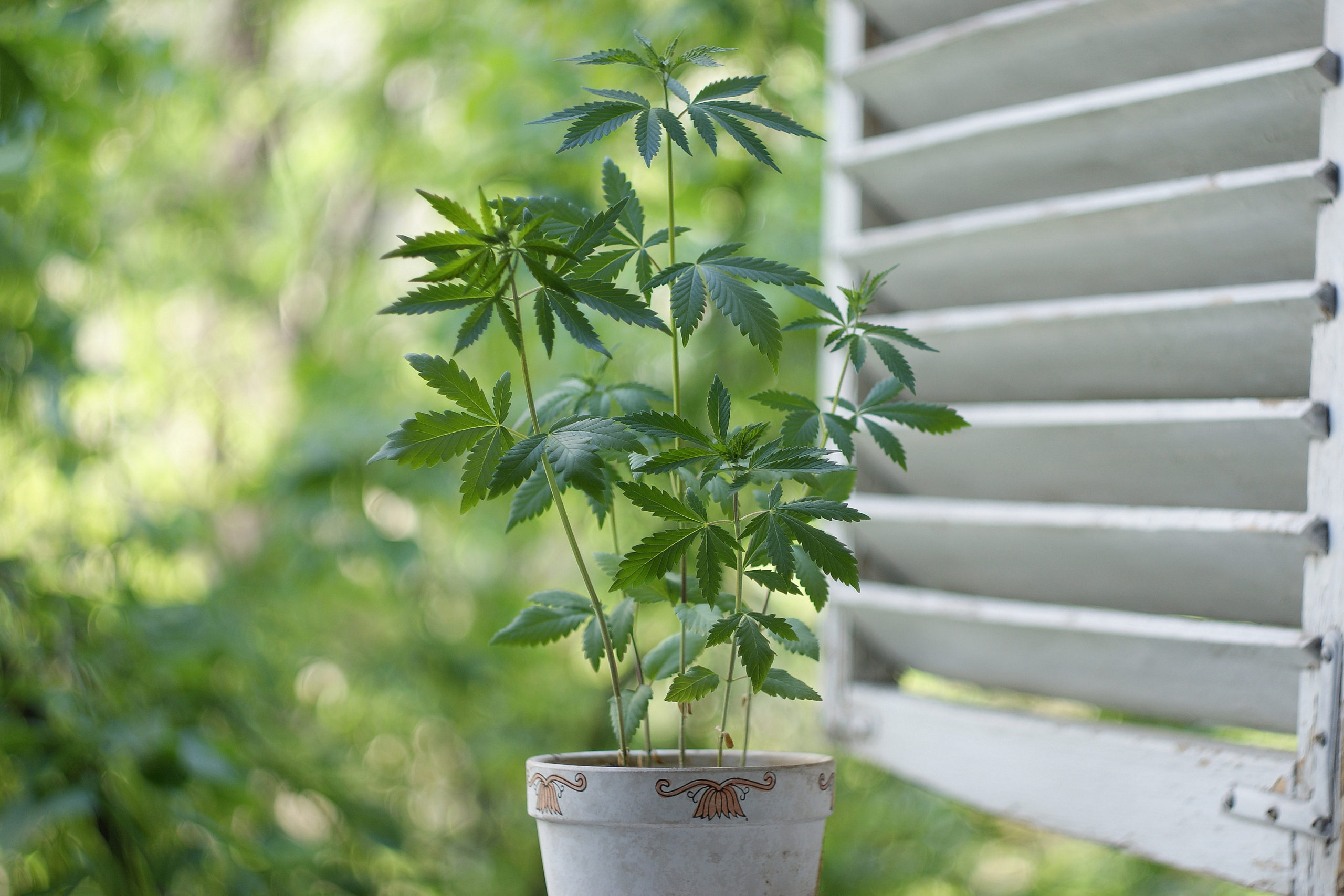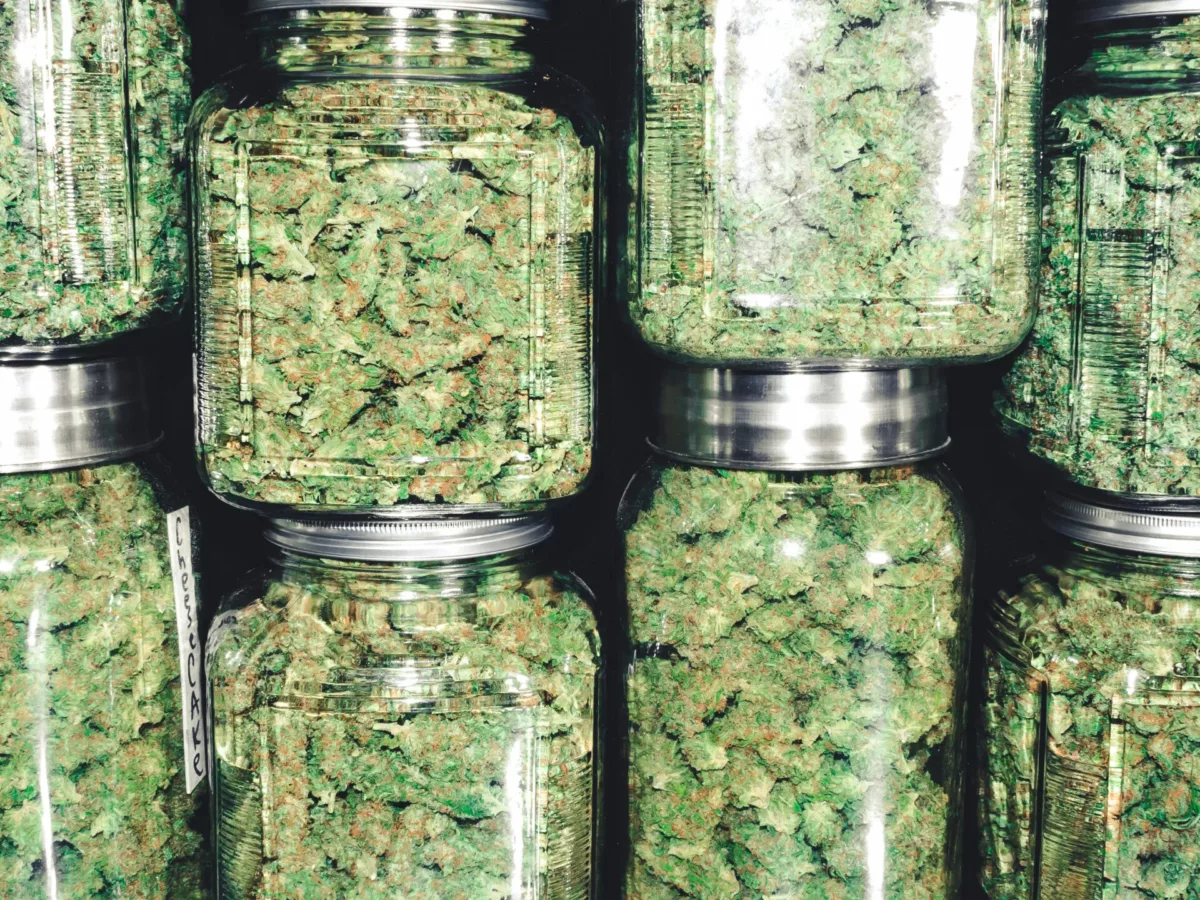With more American adults using cannabis than ever before, the notion that parents who smoke pot aren’t inept caretakers is quickly gaining traction.
In popular culture, the stoner parent is no longer relegated to the margins, with celebrity moms from Kristen Bell to Amy Schumer readily admitting they toke up. Meanwhile, social media groups like “CannaDads” and “Stoner Moms” are racking up thousands of users who believe “cannabis use and great parenting are not mutually exclusive.”
Around the DMV, weed laws have progressively gotten more relaxed over the last decade. In D.C. and Virginia, recreational cannabis use is now fully legal for adults, and Maryland voters will have a chance to vote on legalization this November election.
The shift in local laws and attitudes around bud has left many parents who partake in the green facing tough questions. What do I tell my kids about weed? Do I light up in front of them? Where should I hide my stash? Does little Tommy really need to know what “dabbing” means?
Some parents are opening up about using cannabis, though many still fear judgment from their peers, legal repercussions, or simply don’t think their children are ready for the conversation. Most of the parents who spoke to The Outlaw Report asked not to include their full names or personal details in this story.
Laura, who is raising 6-year-old twins in D.C., likes to buy pre-rolled joints from one of the many gray-market weed shops that have cropped up around the District since voters approved an initiative to legalize cannabis in 2014.
“Most everybody smokes weed, even among moms that maybe you wouldn’t think,” she said.
In her view, going to a sleek brick-and-mortar feels more comfortable than meeting a dealer at the park, and adds a certain sheen of respectability to buying weed.
“It’s a store that they’re trying to make look fancy, and these pre-rolls come in little glass tubes, and you’re a club member and you earn points,” Laura said. It becomes just another errand to run, or as she puts it, “a normal part of your life like CVS or whatever.”
Even so, Laura considers her kids are still too young for a conversation on weed, and worries about the day she’ll need to bring it up.
“We don’t do it in front of them but they’ve smelled it or smelled it on us,” she explains. “So that’s what I’m worried about, that they’re going to be somewhere and be like ‘this smells like mommy!’”
After using weed on a near-daily basis for years to help manage his ADHD, Jason Janosik decided to open an organic growshop last year in Midlothian, Virginia, after the commonwealth legalized the cultivation of up to four cannabis plants per household.
His two daughters are now adults, but he never felt the need to hide his love for bud from them.
“When I had kids I told them flat out I don’t think there’s anything wrong with it, I use it every day, and this is why,” he said.
He did warn his daughters about the (still-inconclusive) research on how weed affects the adolescent brain, but made sure they felt safe talking to him about cannabis – especially at home.
“When you’re in high school shit’s going to happen and I’d rather it happen here than at a party,” he said.
At Janosik’s growshop, customers run the gamut from preachers to lawyers. Usually, they’re excited to start cultivating weed at home, but some parents say they’re nervous about having cannabis plants around their kids.
“I still have people come in who want to get rid of the smell because they don’t want their kids to see it,” he said.
To be sure, it’s one thing to hide a bubbler, but making a four-foot tall cannabis plant disappear is a different challenge. Janosik’s advice to parents: Be transparent, because taboos only make kids more curious.
“I tell everyone to be open about it because it’s just like a beer, and nobody’s hiding a beer or a glass of wine from their kid when they go out to eat,” he said. “If you try to hide it, lock it, keep it from him, as soon as you leave his ass is picking that lock.”
Lena, who lives in Chesterfield County, waited for Virginia to legalize recreational weed to tell her 12-year-old stepdaughter she had a medical cannabis card.
“It being legal was the driving force behind being open with her about it,” she said.
She and her husband are now growing weed in a tent that sits in their home office. At first, they tried to keep their project on the down low.
“We have a bunch of houseplants, so we told [the kids] it’s an indoor greenhouse,” Lena explained.
Her stepdaughter had no clue what the plant was, but after she showed the grow setup to visiting friends, Lena sat her down and had a deeper conversation about the legality and purposes of marijuana plants.
She’s recently gotten more comfortable telling friends about her weed use, and has noticed other parents becoming more outspoken about it – both in person and online.
“We have a Facebook page in the neighborhood since it became recreationally legal in VA last summer,” she said. “They have get-togethers where they’ll trade and talk about things.”
But parents aren’t always on the same page about weed, and that can create family tensions.
Taylor, the parent of a 13-year-old daughter in Brookland, feels perfectly comfortable using weed, but has plenty of reasons to keep quiet about it.
“Even among the people I know who I think also use weed, it’s just not discussed in my circles,” they explain.
Taylor is separated from their daughter’s father, who is anti-weed, and they worry disclosing their cannabis use to him could lead to problems down the line.
“Maybe he’s gotten more lax since it’s more legalized, but years ago before it was legal I would be risking going to court for a custody battle if he found out I smoked weed,” Taylor explains.
Even in states where cannabis is legal, weed consumption continues to be used against parents in child custody battles. While “wine-moms” are generally seen as fun and laid back, parents who use weed are regularly threatened with losing their children in some states.
Taylor is quick to point out that double-standard.
“Why can we be OK with mom having a bottle of wine and Xanax every night, but I’m getting shamed for smoking a bowl?”
Taylor mostly uses weed to counter anxiety, and says pot actually makes some parents more engaged and attentive. “In reasonable amounts, it makes you more present and able to enjoy the little things and not be so wound up about everything.”
That’s particularly true for parents who use weed for medicinal reasons.
Ben, who is the father of two young kids in Virginia, said he takes a small dose of a cannabis tincture before bed on most nights to get better sleep.
“Maybe I’m a little more present after microdosing, maybe not,” he said. “But I don’t feel like it takes me out of the situation. Certainly the sleep that it makes possible and lowering my anxiety, those things make me a better parent.”






